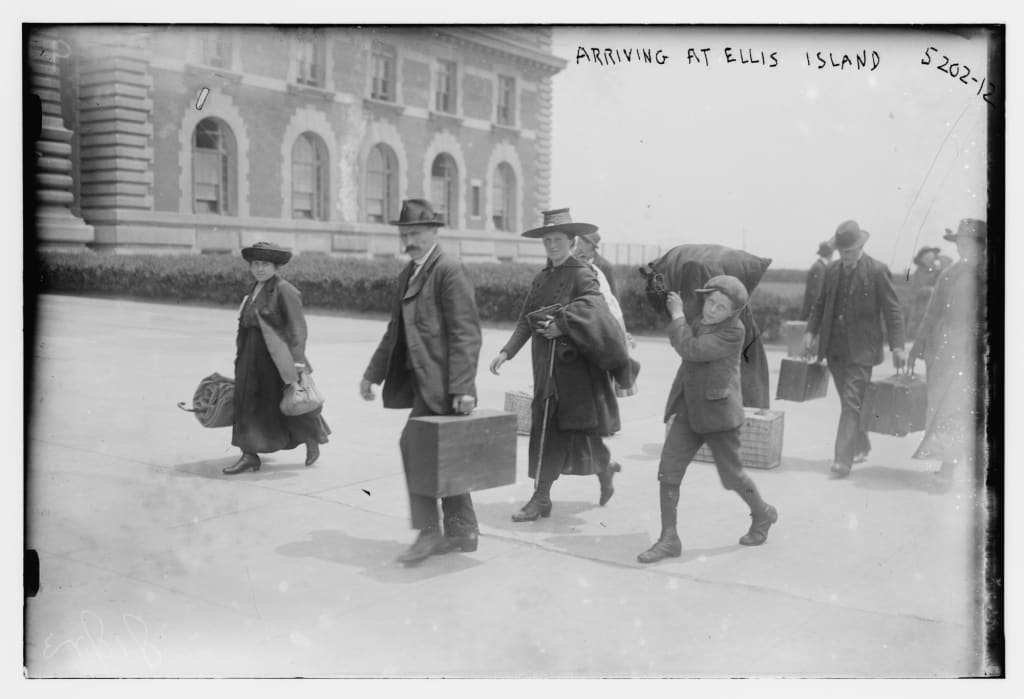Editing Your Language Quirks
The hidden impact of regionalisms, heritage languages and bilingualism

Recently struggling to polish my prose, an outline emerged from the word salad, a problem. I was repeatedly creating sentences which sounded good to me but were lousy English. These bastards finished with all the action, the accent, the “oomph” at their tail ends. My heritage language had stepped on my English; I had been writing with a German word order. Once I understood why I wrote this way, I stopped doing it.
A shrewd toddler, I always nodded “yes” whenever Grandpa questioned me in German, although I didn’t understand all the words. He’d lean down, smiling, and invite me, with a string of German, to have some fun. At times, I shaped my English sentences along German lines. Ignoring the standard English word order of subject-verb-object, I’d go German and let loose with subject-object-verb sentences. My grandmother would chide me, “You’re talkin’ Dutch, now!” (She meant “Deutsch” or “German.”) I never studied German. I still couldn’t write, read or speak an entire sentence in German if my life depended on it. But I do know how to correctly pronounce “Pflaummer” and “Schoenling” and can bake a Christmas stollen.

Although my grandfather, son of an immigrant, never stepped foot in Germany, his ethnicity percolated throughout my life. Our Dayton neighborhood of nineteenth century houses in the city’s East End had long been home to German immigrants and their descendants. Like many other families in the Midwest, our religion, foods and celebrations would not seem out of place in Germany. We could roll and cut noodles and drink beer with the best of Bavaria.
German is my heritage language. Heritage languages are minority languages learned informally, at home. In the United States, they are non-English languages. Heritage languages include both those brought in by immigrants as well as indigenous ones such as Navajo. Still others — “colonial heritage languages” — reflect early European settlers. Think French in Louisiana or Spanish in New Mexico. Heritage language speakers are not necessarily fluent in their heritage language nor fully proficient in grammar. Unlike those who learn English as a Second Language, English is the dominant language for heritage speakers.
Writers who grew up with a heritage language may find their English writing affected just as I did. The same phenomenon can occur with bilingualism. Whether learned in high school classes or during a stint in the Peace Corps, new languages will shape a person’s English. Always. Maybe a lovely French word comes more readily to mind than any English word as the writer strives to describe a feeling. Or, a traveler spending all day speaking Italian, may struggle to recall an English verb. Contrary to popular thought, bilingualism does not equate to fluency. Bilingual folks, like heritage language speakers, have varying levels of both proficiency and fluency. This ability can fluctuate, depending on the situation.

Writers who only speak and write English aren’t off the hook either from the influence of personal language quirks. Regional American English is alive and well in every nook and cranny of the country. Syntax and word choices can leave unintentional little footprints in a writer’s poems, stories and books. Maybe a New England accent can’t be heard in a novel but having the protagonist sip a “frappe” can be a dead giveaway of the author’s home region. Folks drink “pop” in Ohio, “soda” in California, and “Coke” in Georgia. I grew up, like many in Ohio, with my mother asking me to “rett up the table” after dinner and calling green peppers “mangoes.” It’s a long story.
Realizing personal language quirks lets writers edit and write with greater intention. Regional dialects, bilingualism, and heritage languages add flavor to speech. Spanglish in California and Franglais in Quebec can be fun as long as tout le gang is on the same page. But unintentional use of regionalisms and foreign words can confuse readers. Not everyone has come across the so-called “positive anymore” as a substitute for “nowadays.” Those folks will not understand the sentence,” Anymore I just buy fresh fish.” To those hip to the “positive anymore,” it means they now buy fresh fish.

Reference books such as the Dictionary of American Regional English by Joan Houston Hall can help identify dialect foibles. The Yale Grammatical Diversity Project, English in North America has a handy list of common phenomena. A quick and dirty technique to discover language quirks involves friends from outside the writer’s native region. Asking them if the writer uses any terms they consider quaint or downright odd will be enlightening. A writer can also ask how their language changes after they’ve spent time back where they grew up or on the phone with relatives.
Taking the time to identify the flavor of your language can lead to better writing.
About the Creator
Diane Helentjaris
Diane Helentjaris uncovers the overlooked. Her latest book Diaspora is a poetry chapbook of the aftermath of immigration. www.dianehelentjaris.com
Enjoyed the story? Support the Creator.
Subscribe for free to receive all their stories in your feed. You could also pledge your support or give them a one-off tip, letting them know you appreciate their work.
Reader insights
Outstanding
Excellent work. Looking forward to reading more!
Top insights
Easy to read and follow
Well-structured & engaging content
On-point and relevant
Writing reflected the title & theme







Comments
There are no comments for this story
Be the first to respond and start the conversation.